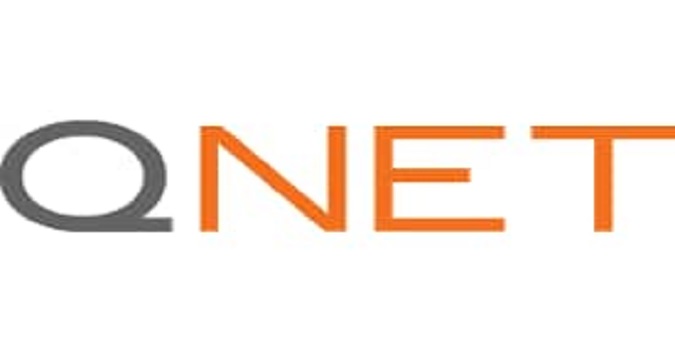Broadcasting
Afrobeats and Amapiano Lead Africa’s Musical Revolution

Africa’s music scene is no longer just a regional sensation, it has become the pulse of global pop culture.

As African music continues to enchant global audiences, Spotify Wrapped 2024 unveils the diverse range of genres that people now enjoy all over the world. While Afrobeats and Amapiano often dominate headlines, this year’s Wrapped data sheds light on other emerging sounds that define Africa’s music.
Reimagined histories
Hiplife and Highlife from Ghana, rooted in the country’s rich cultural history, remain highly exported due to their fusion of traditional Highlife melodies with contemporary beats that keep them globally relevant.
Artists like King Paluta, Fameye, and KiDi are leading the way in blending traditional Highlife melodies with modern sounds. Fameye’s Very Soon and King Paluta’s Aseda—a heartfelt song of gratitude—are examples of how the genre is evolving. Their fresh take on Highlife has helped drive a 54% increase in global streams, a sign of the genre’s appeal to both local and international audiences.
In Kenya, Arbantone, mainly characterized by beats from samples of Kenyan old school hits. This sound combines elements of Gengetone and old Jamaican riddims, led by a wave of young rappers who bring the raw lyricism of Gengetone. Captivating young audiences, Arbantone is quickly rising on local music charts.
Arbantone grew significantly in 2024, partially thanks to viral dance challenges on social media. Artists like Dyana Cods’ “Set It”, harnessed the genre’s infectious beats and catchy lyrics to connect with her fans. The song became one of the most popular Arbantone tracks in Kenya, securing the number 3 most streamed Arbantone track in Kenya as revealed by the 2024 Spotify Wrapped data.
Embracing experimental sounds
Nigeria’s Alté is becoming more popular abroad where it’s now the country’s fourth-most exported genre in 2024. Pronounced “uhl-teh”, a shorthand for alternative, you may have heard the experimental mix of Afrobeats, R&B, and hip-hop, with electronic influences on tracks like Soh-Soh by Odeal or Amaarae’s Wanted. The likes of Amaarae, Lady Donli and Odunsi (The Engine) paved the way for a new generation of artists like DEELA, DETO BLACK and brazy to tap into Alté’s rebellious, bold and unconventional brand of self-expression. The global success of Alté-influenced musicians like Tems, Rema and Odeal symbolises how the genre is taking its place in mainstream music culture. Countries like Ghana have embraced the sound with over 60 billion Spotify streams, and Alté now has 41% more global plays than it did a year ago.
South Africa’s Afro House, known for its deep rhythms and soulful vocals, has become a favourite in electronic music circles around the world. DESIREE and DJ Shimza have been instrumental in influencing the growth of Afro House. DESIREE sets blend African rhythms with modern electronic sounds, while DJ Shimza’s electrifying global performances have propelled the genre to new heights. As more artists from around the world incorporate African sounds into their music, the genre has influenced global dance floors.
Household names
Afrobeats continues to lead Africa’s music revolution, evolving rapidly and driving the movement forward. In 2024, the genre saw a significant 28% increase in global streaming. Tracks like Santa by Ayra Starr, Rauw Alejandro, and Rvssian highlight the genre’s versatility, while Calm Down by Rema and Selena Gomez underscore its widespread international appeal. Collaborations like Skillibeng and Tyla’s Jump, Gunna showcase Afrobeats’ adaptability and its growing dominance on global charts.
Amapiano, meanwhile, has emerged as Africa’s fastest-growing genre, with a phenomenal 59% increase in global streaming in 2024.
Another sign that the future of global music will undoubtedly feature even more beats, grooves, and melodies from the continent.
Broadcasting
AI and Cybersecurity: Balancing Innovation with Caution

By Aaron Bugal, Field CTO APJ, Sophos
Undoubtedly one of the most influential technologies in recent decades, the ascent of artificial intelligence has produced a mixture of reactions from individuals, organisations, and countries. Eyes widen as we explore its potential, concerns grow as it threatens jobs, and conversations take place at a global level on how it should be regulated. However, for cybersecurity professionals artificial intelligence presents a double-edged sword.

Aaron Bugal, Field CTO APJ, Sophos –
Although AI has shown the ability to enhance cybersecurity solutions with its pattern recognition, summarisation, and assistance capabilities, it also opens the door for threat actors to harness the technology in much more sinister ways. So, in a world where we are in a constant race to out-innovate cybercriminals, what impact will AI have, especially as it continues to evolve itself?
New technologies mean new threats
Cybercriminals have proven they shouldn’t be underestimated. They are continually updating their tactics, strategies, and tools to breach businesses, and AI only strengthens their arsenal. AI has commonly been used to help threat actors better imitate real people – altering voices, pictures, and messages to carry out convincing phishing attacks.
Beyond mimicking human behaviour, cybercriminals have begun to experiment with AI at a more technical level. Malicious GPTs have been advertised on cybercriminal marketplaces, with functions such as automated penetration testing or malicious malware development.
However, sharing a similar experience to legal industries and businesses, there is still some hesitance from cybercriminals when it comes to implementing the technology into operations, as threat actors are mainly exploring generative AI in the context of experimentation and proof-of-concepts.
This does not mean organisations should see this as a sign to slow down, as artificial intelligence will inevitably become a regular feature of cyber attacks. Instead, businesses should be evaluating if they are using the technology in a secure and optimal way within their cybersecurity set up.
AI adoption is not about being first, but being smart
Businesses of all sizes are examining how AI can be used, with Sophos finding 98 per cent of organisations are using it within their cybersecurity infrastructure in at least some capacity. Further to this, 65 per cent of organisations use cybersecurity solutions that include generative AI capabilities, and 73 per cent use solutions that include deep learning models.
While AI adoption in cybersecurity can bring many advantages, it also introduces a number of risks if approached incorrectly. Poorly implemented AI models can inadvertently introduce considerable cybersecurity risks of their own – if it isn’t provided with the right inputs, it cannot provide adequate outcomes. Organisations are alert to this risk, with the vast majority (89%) of cybersecurity professionals saying they are concerned about how potential flaws in cybersecurity tools’ generative AI capabilities will harm their organisation, with 43 per cent highlighting they are extremely concerned.
This alertness must also remain for AI that’s implemented in non-cybersecurity related tools, as emerging technologies pose threats in their infancy. Agentic AI for example has become highly topical recently, but will a technology that learns from humans be able to adequately defend itself from cyber threats? At its current level, AI should be approached with the intention that it can serve a single purpose and expecting an individual system or ‘AI agent’ to do everything with minimal human interference is risk inducing.
Therefore, an organisation’s artificial intelligence advances – both within cybersecurity infrastructure and its entire technology stack – must be done with guardrails up and thorough oversight.
Fighting fire with fire without getting burnt
In an ongoing race against cybercriminals, artificial intelligence will only become a multiplier to innovation that takes place on both sides. For businesses, avoiding the risks of AI within cybersecurity systems is possible when implementation is approached with care. This can be achieved through:
· Inquiring about vendor’s AI capabilities: AI requires transparency, and asking cybersecurity vendors about how their data is trained, what AI expertise their professionals have, and their roll out process for deploying AI capabilities will help paint a clearer picture of AI development best practices.
· Providing strict outlines to AI investment: AI investment cannot be rushed, so it is important to assess whether AI provides the best solution for current cybersecurity challenges, prioritise specific AI investments, and measure the impact of AI once it is implemented into cybersecurity infrastructure.
· Remain human first in AI adoption. Organisations should never take a set-and-forget approach to cybersecurity, and this is even more the case when AI is involved. Ultimately, cybersecurity is a human responsibility, and AI should be used as an accelerant to support cybersecurity professionals, not a replacement.
Artificial intelligence will become a mainstay within organisations for many years to come. This is no different for cybersecurity, however with such high stakes it is vital that AI is used correctly, or it will only work against its intended purpose – giving cybercriminals the leg up over organisations in this ongoing battle. It is not about implementing a range of AI capabilities to expand your cybersecurity infrastructure, but the right capabilities that address your cybersecurity needs.
Broadcasting
QNET Reaffirms Integrity: Dissociates from Mighty Infinity Millionaire Ltd in Nigeria

QNET, a global leader in direct selling focused on wellness and lifestyle products, firmly disassociates itself from any unlawful activities being conducted by unauthorized individuals or entities fraudulently using the QNET name to mislead and exploit members of the Nigerian public.

These concerns have resurfaced following the arrests of several suspects in Niger State and the Federal Capital Territory, Abuja.
QNET commends the Economic and Financial Crimes Commission (EFCC) for its actions in apprehending those responsible and is actively supporting the authorities to prevent further misuse of its brand.
QNET Says NO to Brand Misuse and Criminal Misrepresentation
QNET is a 27-year-old international direct selling company offering wellness and lifestyle products through a network of independent distributors.
These individuals are customers who have purchased QNET products and have chosen to build their own direct selling business using our platform. They operate independently and are not employees of QNET.
Unfortunately, certain third-party entities such as Mighty Infinity Millionaire Ltd, that have no affiliation to QNET, and operate without our oversight or recognition, have grossly misrepresented the QNET business model and acted in a manner that is in no way a representation of QNET business ethics or values.
We unequivocally state that such entities and individuals are not affiliated with or endorsed by QNET. QNET reiterates that Transblue Nigeria Limited remains our sole partner in Nigeria.
Operating Within Legal and Ethical Boundaries
In Nigeria, QNET operates strictly within the legal and regulatory frameworks through our official local partner, Transblue Nigeria Limited. We remain committed to ethical business practices and protecting both our brand and the public from exploitation. We urge members of the public to remain vigilant, verify the authenticity of individuals or entities claiming affiliation with QNET, and report any suspicious activity to the appropriate authorities.
Statement from QNET’s Regional Leadership & Legal Nigerian Partner
Responding to the fraudulent activities being perpetrated in QNET’s name, Biram Fall, Regional General Manager of QNET for Sub-Saharan Africa, states, “We are extremely disturbed by the way unscrupulous individuals have misused the QNET brand to deceive innocent Nigerians with false promises. At QNET, our values are rooted in honesty and empowering people to build better lives through genuine means. We remain committed to supporting law enforcement agencies in their efforts to bring these fraudsters to justice and encourage the public to verify any claims of affiliation with QNET before getting involved.”
To avoid further confusion, QNET wishes to emphasize the following:
● QNET does not operate or endorse any physical or online university under the name “Q-University” in Nigeria. QNET is part of a larger business conglomerate that operates the Quest International University in Malaysia, which does not have any overseas campus.
● QNET is not involved with online medical courses or academic institutions in Nigeria.
● QNET does not support or condone recruitment-driven models that promise employment, scholarships, or guaranteed returns unrelated to the legitimate sale or purchase of QNET products.
● QNET strongly condemns the unauthorized use of our intellectual property – including company logos, founder portraits, and promotional materials – by fraudulent actors aiming to mislead the public.
QNET’s Awareness Creation and Consumer Protection Efforts
Since entering the Nigerian market in 2022, QNET with the support of our local partner, Transblue Nigeria Limited, have prioritized financial literacy and consumer protection. In November 2023, we launched the Say NO! Awareness Campaign to educate the public about scams and promote responsible entrepreneurship. The campaign has reached thousands through multilingual billboards, radio messages, educational pamphlets, and online platforms. As part of this campaign, the Federal Ministry of Labour and Employment (FMLE) and the Lagos State Consumer Protection Agency (LASCOPA) were also engaged.
Cooperation with Law Enforcement
QNET expresses its full support and appreciation for the EFCC’s efforts to protect citizens and crack down on cyber and financial crimes. We are actively cooperating with the Commission in its investigations and are committed to further educating the public on the nature and values of QNET’s legitimate operations.
Public Advisory: How to Stay Safe
To protect yourself from scams falsely linked to QNET:
● Verify all QNET-related information at: www.qnet.net
● Report suspicious activity via email: network.integrity@qnet.net or WhatsApp: +233 256 630 005
● Learn how to identify scams at: www.saynocampaign.org
QNET remains fully committed to ethical business practices and transparency. We stand with Nigerian authorities in protecting citizens from fraud and will continue to cooperate fully to bring those misusing our brand to justice.
Broadcasting
Eedris Abdulkareem Teases New Protest Anthem following NBC Ban

Eedris Abdulkareem, veteran hip hop artiste, is showing no signs of backing down as he hints at releasing another protest song, shortly after his last track was banned by the National Broadcasting Commission (NBC).

Eedris Abdulkareem, veteran hip hop artiste
He recently again stirred the political waters as he hinted at the release of a new protest song, only weeks after his controversial track Tell Your Papa was banned by the National Broadcasting Commission.
The outspoken musician took to social media on Wednesday, April 16, 2025, to share an animated cover design with the words “3 Arms of Government,” suggesting the theme of his upcoming release.
Though the title remains undisclosed, the post was captioned simply with “Stay tuned,” fueling speculation that another hard-hitting social commentary is on the way.
Abdulkareem, known for his unapologetic political views, recently described the NBC’s decision to ban Tell Your Papa as hypocritical. Undeterred by censorship, he appears set to continue using music as a platform to criticize injustice and demand accountability.
The rapper also recently reaffirmed the relevance of his classic hit Jaga Jaga, stating that it would remain the country’s “second unofficial national anthem” until key issues like security, electricity, and governance are addressed.
With another protest song on the horizon, fans and critics alike are bracing for what may be Eedris Abdulkareem’s most direct political message yet.

 Telecom2 days ago
Telecom2 days agoMTN Appoints Egerton Idehen as Chief Broadband Officer

 General News2 days ago
General News2 days agoUBA Marks 75 Years of Excellence at 65th AGM

 Telecom2 days ago
Telecom2 days agoMTN Group Suffers Cyberattack

 Telecom2 days ago
Telecom2 days agoDigital Realty Expands ServiceFabric to Nigeria, Enhancing Global Interconnectivity

 Telecom2 days ago
Telecom2 days agoMTN Foundation Launches Skills Academy to Bridge Nigeria’s Digital Skills Gap

 Telecom2 days ago
Telecom2 days agoLegend Internet Plc Makes History as First Indigenous Telecom Firm on NGX
- Telecom2 days ago
Tribunal Upholds FCCPC’s $220m Fine against Meta, WhatsApp

 E-Financial2 days ago
E-Financial2 days agoWorld Bank Predicts Rise of Poverty in Nigeria Despite Economic Growth




























